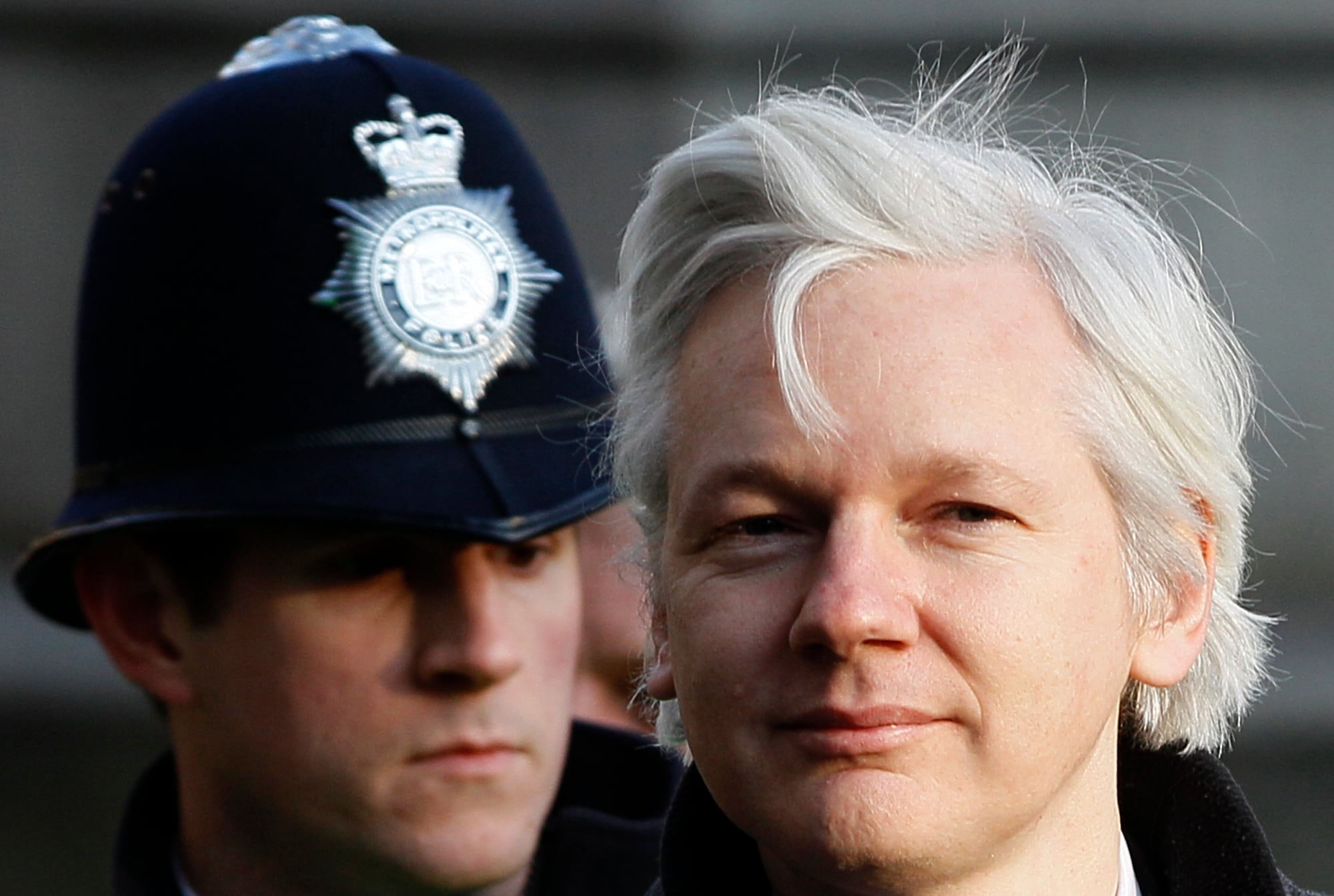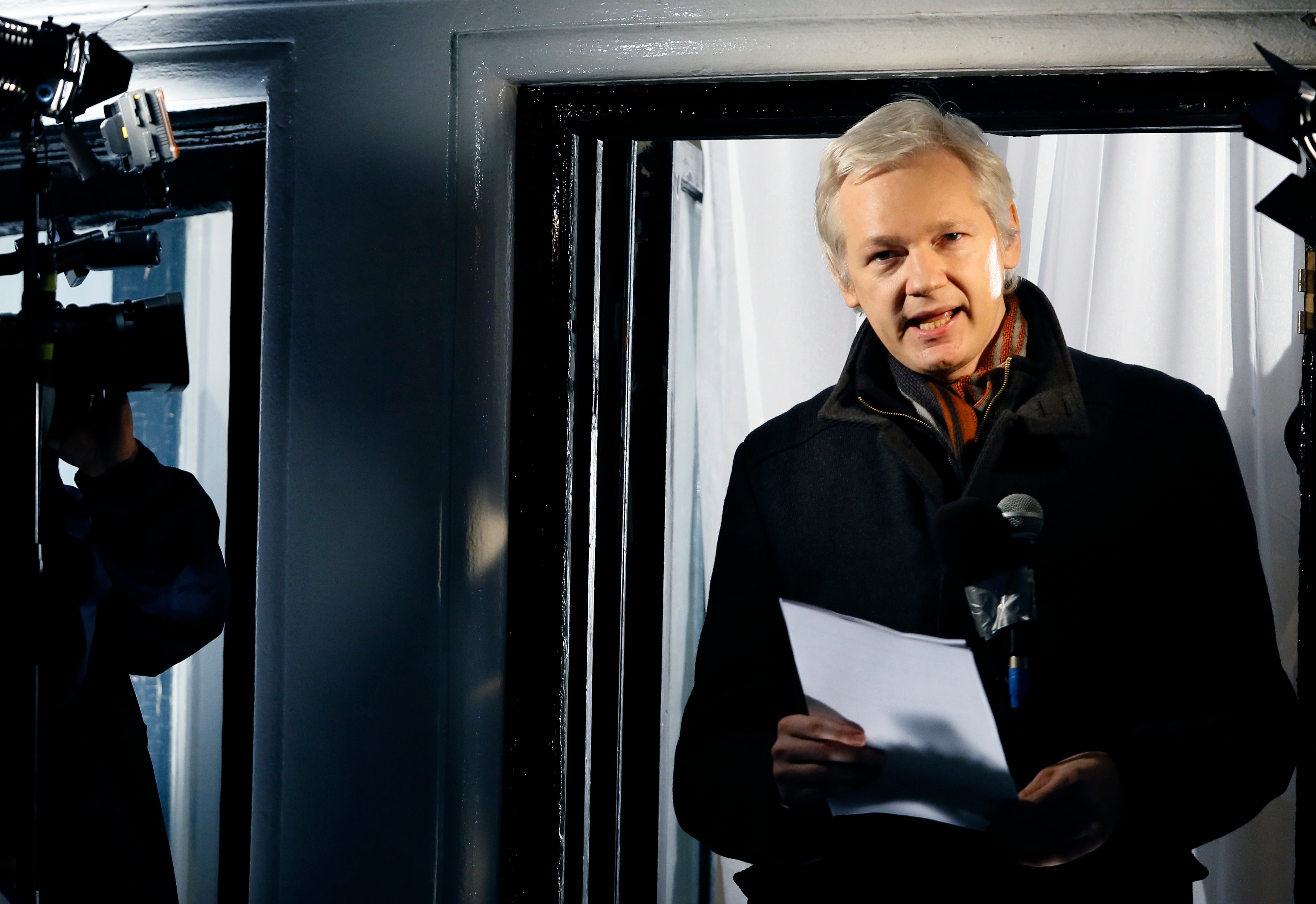By Danica Kirka
A British appellate court opened the door Friday for Julian Assange to be extradited to the United States by overturning a lower court's decision that the WikiLeaks founder's mental health was too fragile to withstand the American criminal justice system.
The High Court in London ruled that U.S. assurances were enough to guarantee Assange would be treated humanely and directed a lower court judge to send the extradition request to Britain's interior minister for review. Home Secretary Priti Patel, who oversees law enforcement in the U.K., will make the final decision on whether to extradite Assange.
“There is no reason why this court should not accept the assurances as meaning what they say,'' the High Court ruling stated. “There is no basis for assuming that the USA has not given the assurances in good faith.”

Assange’s fiancé, Stella Moris, called the decision a “grave miscarriage of justice” and said Assange's lawyers would seek to appeal to the U.K. Supreme Court.
“We will fight," Moris said outside court, where supporters gathered with banners demanding Assange's release.
“Every generation has an epic fight to fight and this is ours, because Julian represents the fundamentals of what it means to live in a free society,” she said.
Assange, 50, is currently being held at London’s high-security Belmarsh Prison. The High Court ordered that he remain in custody pending the outcome of the extradition case.
In January, a lower court judge refused the U.S. request to extradite Assange to face spying charges over WikiLeaks’ publication of secret military documents a decade ago. District Judge Vanessa Baraitser denied extradition on health grounds, saying the Australian citizen was likely to kill himself if held under harsh U.S. prison conditions.
The United States appealed, challenging the notion that Assange’s mental health made him too vulnerable to withstand the U.S. judicial system. James Lewis, a lawyer for the U.S. government, said Assange “has no history of serious and enduring mental illness” and does not meet the threshold of being so ill that he cannot resist harming himself.
U.S. authorities have told British judges that if Assange is extradited for prosecution, he would be eligible to serve any U.S. prison sentence he receives in his native Australia. The authorities also said he wouldn't be held at the supermax penitentiary in Florence, Colorado, the highest-security prison in the United States.

The U.S. has indicted Assange on 17 espionage charges and one charge of computer misuse over WikiLeaks’ publication of thousands of leaked military and diplomatic documents. The charges carry a maximum sentence of 175 years in prison, although Lewis said “the longest sentence ever imposed for this offense is 63 months.”
Since WikiLeaks began publishing classified documents more than a decade ago, Assange has become a flashpoint figure.
Some see him as a dangerous secret-spiller who endangered the lives of informers and others who helped the U.S. in war zones. Others say WikiLeaks shone a light on official malfeasance that governments want to keep secret.
American prosecutors say Assange unlawfully helped U.S. Army intelligence analyst Chelsea Manning steal classified diplomatic cables and military files that WikiLeaks later published, putting lives at risk. Lawyers for Assange argue that he was acting as a journalist and is entitled to First Amendment freedom of speech protections for publishing documents that exposed U.S. military wrongdoing in Iraq and Afghanistan.
Assange has been in prison since he was arrested in April 2019 for skipping bail during a separate legal battle. Before that, he spent seven years holed up inside Ecuador’s Embassy in London. Assange sought protection in the embassy in 2012 to avoid extradition to Sweden to face allegations of rape and sexual assault.
Sweden dropped the sex crimes investigations in November 2019 because so much time had elapsed.








